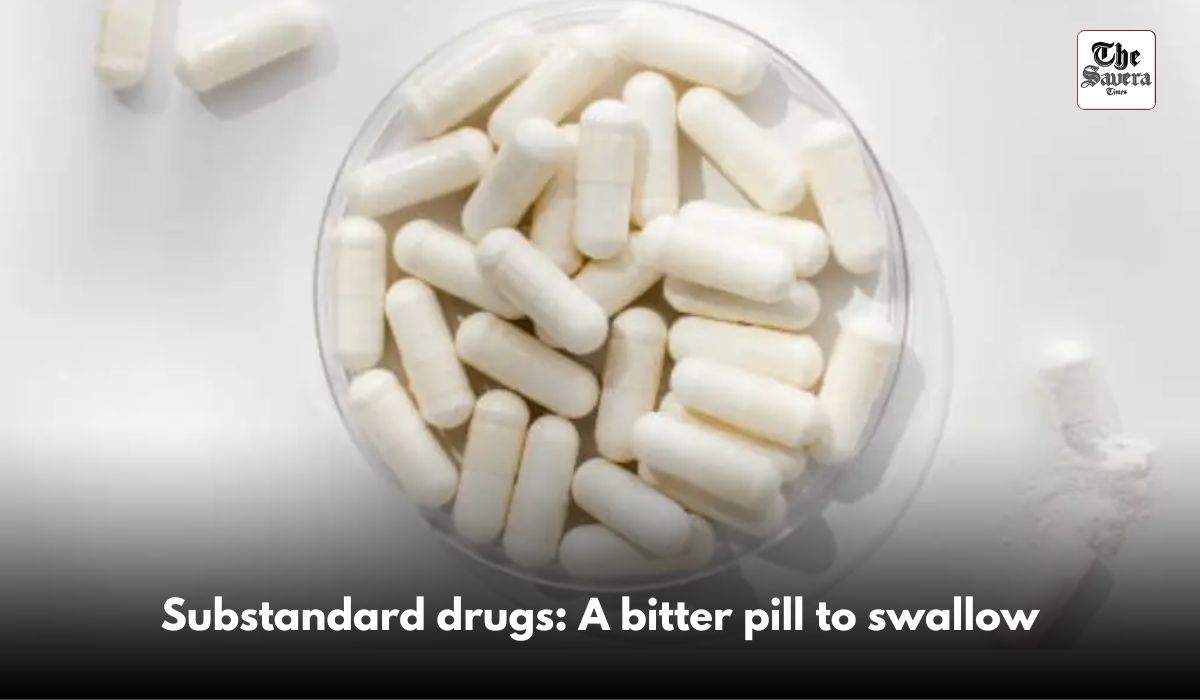
Late last month, a paper in The Lancet Global by a team of researchers led by Maximilian J Wilfinger of the University of Notre Dame, US, reported that several chemotherapy drugs administered in sub-Saharan Africa had failed quality tests.
About 20 per cent of the drugs were either ineffective or had dangerous side effects. The products of 17 manufacturers failed tests. All but one are Indian firms. The Bureau of Investigative Journalism enlarged the story. Like earlier episodes in which paediatric syrups exported from India killed children overseas, this episode reminds us that merely having a volume lead in generics does not guarantee that India can be the “world’s pharmacy”, as the government likes to advertise it.
These were the big picture stories, but the incident also has a personal, human angle. Personal stories are of course anecdotal, but that does not automatically devalue them, because we are not doing statistics here. So, to get personal, a couple of years ago, someone close to me was diagnosed with an aggressive paediatric cancer.
We mostly hear of research successes, and the general impression is that cancers are becoming curable, or at least manageable. Indeed, they are, but for many cancers, treatment has not improved in 30 years. For perspective, it means that the treatment of the cancer we’re talking about has not changed since V P Singh was prime minister. A paediatric oncologist in Delhi told me a fundamental truth: “Cancer doesn’t affect only the patient, but the whole family.” That’s especially true with difficult variants of the disease.
The patient and family are suddenly cut off from normal life. It is as if an invisible wall stands between them and the majority who, thank heavens, have no experience of the disease. What divides these worlds is the idea that life is uncertain. Families with cancer know this; the rest of the world has gratefully forgotten it.
Our legal wills still begin with the words, “Since life is uncertain,” but we are fortunate. We take a course of pills to brush off diseases which were fearsome killers just two generations ago, like pleurisy and typhoid. After penicillin, we are no longer wired to think of untimely death as an everyday reality. Most of us feel it is unnatural to live with uncertainty.
But cancer families know only uncertainty, and questions about some cancer drugs from India amplify it. Indeed, they may have seen the effects reported in the Lancet paper in their own patients. One round of chemo does not produce the expected side effects, while another round is bio-horror. Apparently, this is because the drugs delivered contain too little or too much of the active ingredient. Are manufacturers to blame? Some of the companies whose products failed have denied responsibility and questioned the patency of supply chains instead.
A friend in a US company which makes systems for tracking drugs through supply chains says Indian manufacturers are interested in stringent assurances only for export to first world markets. For the rest of the world, and for the domestic market, it’s not a priority. Now, another personal anecdote a friend in a small town in West Bengal, who has struggled with cancer for decades, has just crowdsourced for his treatment. The drug he needs costs about `20 lakh to import from the US, but rs 4 lakh from Germany.
If it was manufactured in India, it would have cost a fraction of the German rate. Variations in drug prices across borders are a scandalous uncertainty. That is why poorer countries, like the markets examined in the Lancet report, source drugs from India. But if the price for the rebate is quality, then the poor of the world are paying it disproportionately. Families have to marshal all their resources to finance cancer treatment. Middle class families sometimes have to sell assets and even their homes. If they later find that the medication was deficient, they cannot afford to change course or start over again.
The sheer human cost, at a time when the incidence of cancer is steadily increasing, calls for more oversight, whether quality deficits owe to production facilities or supply chains. There is also a mercantile cost. India wants to become a significant provider of the world’s medications, particularly generics. But the health sector is built on reputation, and India’s prospects are damaged by chronic problems like counterfeit drugs and poor quality control, and a shortage of skilled professionals.
The skills shortage is the result of failing to invest in education like China has done after Mao’s time. The effect of the skill shortage will be sharpened as pharma pivots to hi-tech, and frontline disciplines like personalised medicine and AI-powered drug discovery become industry standards. While the government and the industry have been reforming for regulatory compliance and quality assurance, significant gaps remain and commercial pressures have eroded public trust in the health sector.
But affordability doesn’t have to be at the expense of quality. Decades ago, Cipla did provide the quality HIV generics to African nations at $1 a day, as its chairman Yusuf Hamied had promised. Indian pharma had barely recovered from the scandal of supplying toxic syrups to children in the Gambia, Cameroon and Uzbekistan, which had killed over 100, and now cancer drugs are under suspicion.
Lack of international trust in product quality would hamper India’s pharma sector, which is a notable exception to the failure of the Make in India project. And apart from the mercantile cost, there is the human cost to millions of cancer patients and their families the world over.
(Views are personal)
